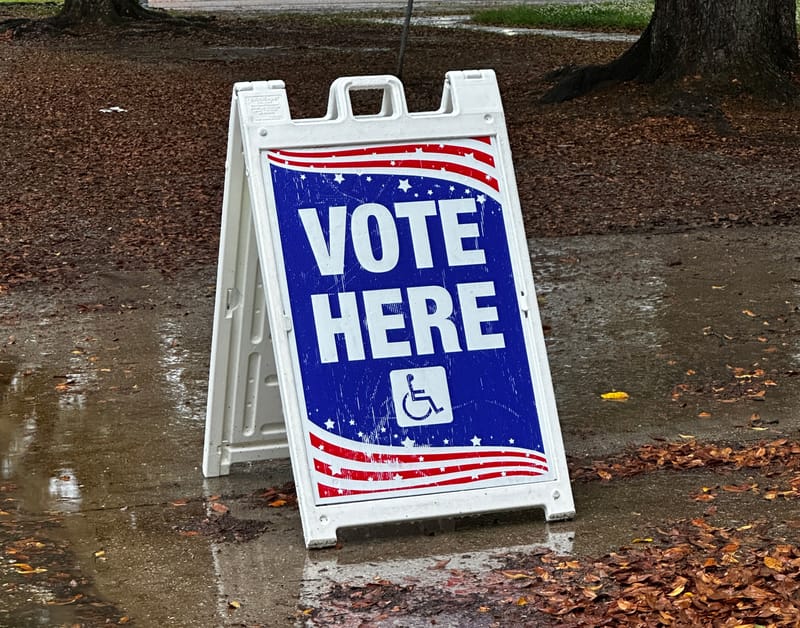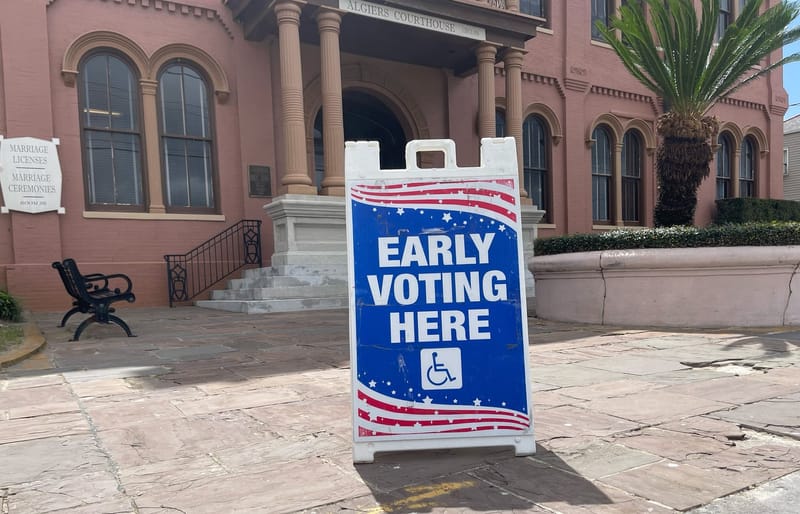How Louisiana’s New 2025 Laws Will Affect Voting, Taxes, and More
While most laws will take effect on January 1, 2025, others will be phased in throughout the year, with some provisions taking effect in mid-2025.

Louisiana residents and businesses can expect significant changes in 2025 as numerous new state laws go into effect. These laws will impact everything from voting regulations to tax policies, consumer protections, education, and workforce requirements. While most laws will take effect on January 1, 2025, others will be phased in throughout the year, with some provisions taking effect in mid-2025. Below is a breakdown of the new laws and how they will affect various aspects of life in Louisiana.
Government and Voting Reforms
Act 500: Beginning January 1, 2025, Louisiana will require proof of U.S. citizenship for voter registration. This change is accompanied by updates to the voter registration form to streamline the process.
Act 317: Also effective January 1, 2025, this law introduces updates to voter assistance procedures, bans unsolicited absentee ballot applications, and allows for emergency absentee ballot requests during disasters.
Act 521: Starting July 1, 2025, this law mandates increased transparency in absentee ballot rejections and introduces procedures for voters to correct errors in their absentee ballots.
Act 550: Changes to recall petition rules will take effect on January 1, 2025. This law establishes more detailed requirements for submitting petitions and ensures that documents related to these petitions remain accessible to the public after 90 days.
Act 282: Effective January 1, 2025, this law raises the reporting threshold for elected officials and public servants regarding property, investments, and sales from $2,000 to $5,000. It also clarifies exemptions for reporting mutual funds, exchange-traded funds, and certain insurance products.
Act 516: Repealing Louisiana’s Occupational Licensing Review Commission, this law eliminates the Commission’s authority to supervise licensing boards and regulate occupational rules, effective January 1, 2025.
Economic Reforms
Act 578: Starting January 1, 2025, property assessments in Louisiana must be based on fair market values determined by official review boards until the next mandated reappraisal.
Act 5: This law, which takes effect January 1, 2025, for income taxes and January 1, 2026, for franchise taxes, establishes a flat rate for Louisiana’s corporate tax system, simplifying the tax structure for businesses.
Act 723: Effective in phases starting July 1, 2024, and continuing through January 1, 2025, this law reallocates state funds to support key areas like infrastructure, education, disaster response, and military families, with some sections taking immediate effect.
Act 273: Beginning January 1, 2025, this law limits non-compete clauses for doctors, establishing distinct rules for family physicians and specialists. It excludes health workers in rural hospitals and health centers from these limitations.
Consumer and Public Protection
Act 656: Effective July 1, 2025, this law mandates that social media platforms with over 1 million users protect the privacy of minors, focusing on measures to secure their online presence.
Act 693: Louisiana’s medical marijuana program undergoes a major overhaul starting January 1, 2025. The Louisiana Department of Health will assume regulatory authority from the Louisiana Board of Pharmacy, with new rules for retail permits and licensing designed to ensure ongoing access for medical marijuana patients.
Act 752: This law, which takes effect January 1, 2025, enforces stricter rules on hemp products, including lower THC limits, clearer labeling, and a ban on sales to minors.
Act 148: Beginning January 1, 2025, this law bans misleading labels on imported seafood and mandates that state institutions serve domestically sourced crawfish and shrimp.
Act 746: Effective January 1, 2025, this law tightens rules for electronic monitoring services. Providers will be required to register with courts and sheriffs, report violations quickly, and offer regular updates. It also prohibits elected officials and their families from profiting from these services.
Act 563: Starting January 1, 2025, minors aged 14 to 16 will be allowed to obtain special ID cards without a custodial parent’s signature, provided they are accompanied by a guardian or nonprofit worker.
Act 786: This law, effective January 1, 2025, updates regulations for auctioneers and auction businesses, adjusting the requirements for obtaining licenses, adding new rules for bonds, and introducing special rules for vehicle auctions.
Infrastructure and Community Governance
Act 9: Effective January 1, 2025, this law updates Louisiana homeowners’ insurance rules. It limits insurers’ ability to cancel or refuse to renew long-standing policies, allows them to drop up to 5% of policies annually with approval, and provides insurers more flexibility in adjusting deductibles.
Act 158: Beginning July 1, 2025, the Louisiana Homeowners Association Planned Community Act will regulate the creation, governance, and management of planned communities. It addresses association duties, voting, assessments, lot boundaries, building restrictions, and consumer protections while providing clear processes for amending rules and resolving disputes.
Act 75: Effective January 1, 2025, this law updates the rules for preventing damage to underground utilities. It defines large and routine excavations, sets guidelines for large projects, and allows agreements between utilities and excavators regarding timelines for utility location marking and emergency work.
Act 175: This law, taking effect January 1, 2025, grants surviving spouses an additional 60 days to pay homeowner’s insurance premiums following the death of their spouse, provided they submit proof of death.
Act 703: Starting January 1, 2025, the Sewerage and Water Board of New Orleans will be required to issue bills based on actual usage unless customers opt for fixed billing.
Act 414: This law, effective January 1, 2025, updates rules for the Lakeshore Villages Community Development District in St. Tammany Parish. It changes how board supervisors are elected, their terms, and pay. If voter participation is low, appointments may be made. The law also allows the board to hire financial and record-keeping services.
Education and Workforce Development
Act 412: Beginning January 1, 2025, unemployment benefits in Louisiana will range from 12 to 20 weeks, depending on the state’s unemployment rate. Extended benefits will be available for those in approved job training programs when regular benefits expire.
Act 655: Starting January 1, 2025, state agencies will be prohibited from requiring a bachelor’s degree for most positions unless it is necessary for specific job skills, promoting greater access to employment opportunities.
Act 91: Effective July 1, 2025, school counselors will be required to align students' course enrollment with their graduation plans and update course catalogs annually.
Healthcare and Family Services
Act 86: This law updates Louisiana’s child support guidelines, revising the schedule of basic child support obligations based on combined monthly income. The new schedule, which takes effect January 1, 2025, will provide updated amounts for determining child support payments.
Act 515: Starting January 1, 2025, Louisiana will implement the Adoption Awareness Program. This initiative will support pregnant women and parents considering adoption, offering education, hotlines, resources, marketing campaigns, and legal protections. Funding for the program will be sourced from the TANF grant.
Act 357: Beginning January 1, 2025, dental insurers will be required to disclose how premiums are spent, particularly on patient care. Spending on care improvements will be capped at 5% of revenue, and Medicaid and CHIP plans are exempt from this rule. Public reports will be available starting in March 2025.
These new laws reflect Louisiana’s commitment to addressing a wide range of issues impacting residents, from voting and taxes to consumer protection and public health. As 2025 approaches, citizens and businesses will need to stay informed about these changes to navigate the evolving legal landscape.






